![Surviving Adversity. Anush Andryan's Family Confronts Blockade, Malnourishment, and the Fear of Their Child's Cancer Reactivation [Blockade from the Inside]](https://cdn.infocom.am/enlarge?file=2023-08-03-567930d9-1ffd-45e5-913a-1201cc9313ad.jpg&type=jpeg&width=900&height=506)
Surviving Adversity. Anush Andryan's Family Confronts Blockade, Malnourishment, and the Fear of Their Child's Cancer Reactivation [Blockade from the Inside]
Due to the 44-day war, the extensive family of Anush Andryan lost their house in Taghaser village of Hadrut region, Artsakh. Anush, her husband and six children currently live in Stepanakert, in a guest house allocated by the state. Today, because of the blockade, Anush's children are malnourished and the health of the 9-year-old girl, who has survived cancer, is at risk. To ensure her recovery goes smoothly, it's crucial to conduct regular medical checkups and provide the necessary PET/CT examination, which can only be conducted in Armenia or another country.
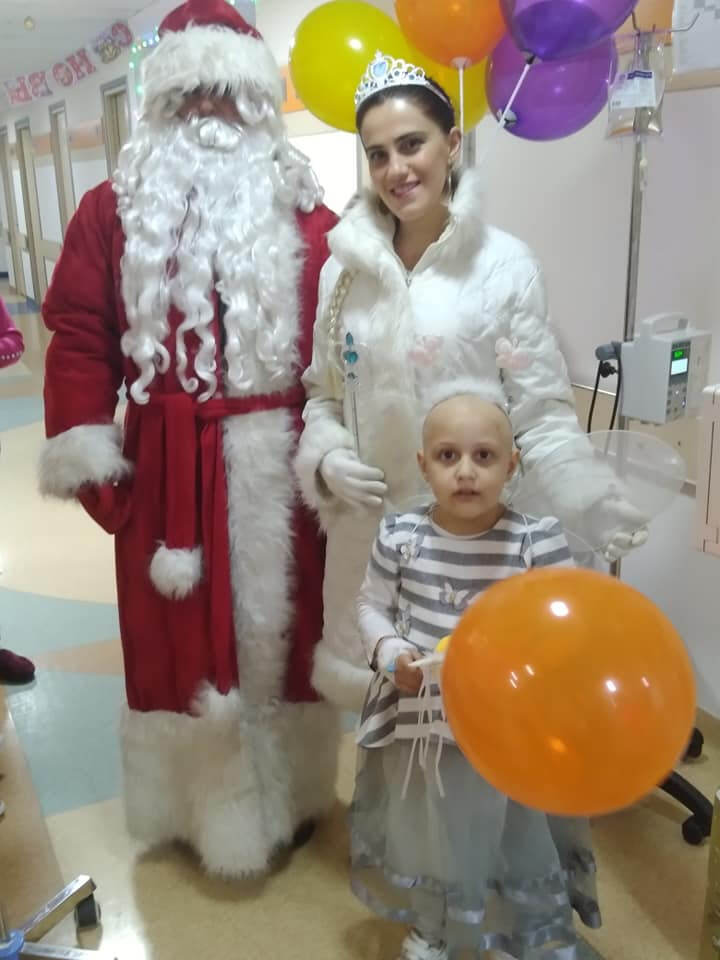
Nvard during her treatment
"My daughter has serious health problems, and that's our primary concern. She had a malignant tumor that was successfully treated in Yerevan, and currently, she's under close observation. While there are CT facilities here, the medical team insists on a PET/CT scan, which unfortunately isn't accessible in Artsakh, and we can't take her to Yerevan. We can find PET/CT services in Armenia or Georgia, but they are not available here in Artsakh. Her tumor is of the type where cell activity is shown only during checkups. My daughter is now in the conservative stage but the lack of proper nutrition is worrisome. She needs essential vitamins, and it's crucial to ensure she receives proper food, as any nutritional deficiency may trigger the tumor's reactivation," says Anush, the mother of 9-year-old Nvard. She notes that through the mediation of ICRC, it's not possible to take the kid to Yerevan alone, as people are not transported without the accompaniment of an adult. Anush doesn't have any relatives in Artsakh to leave her five children with while she travels to Armenia for an uncertain period of time. Her husband is a soldier in the Armed Forces and is on duty, making it difficult for him to be with the children regularly.
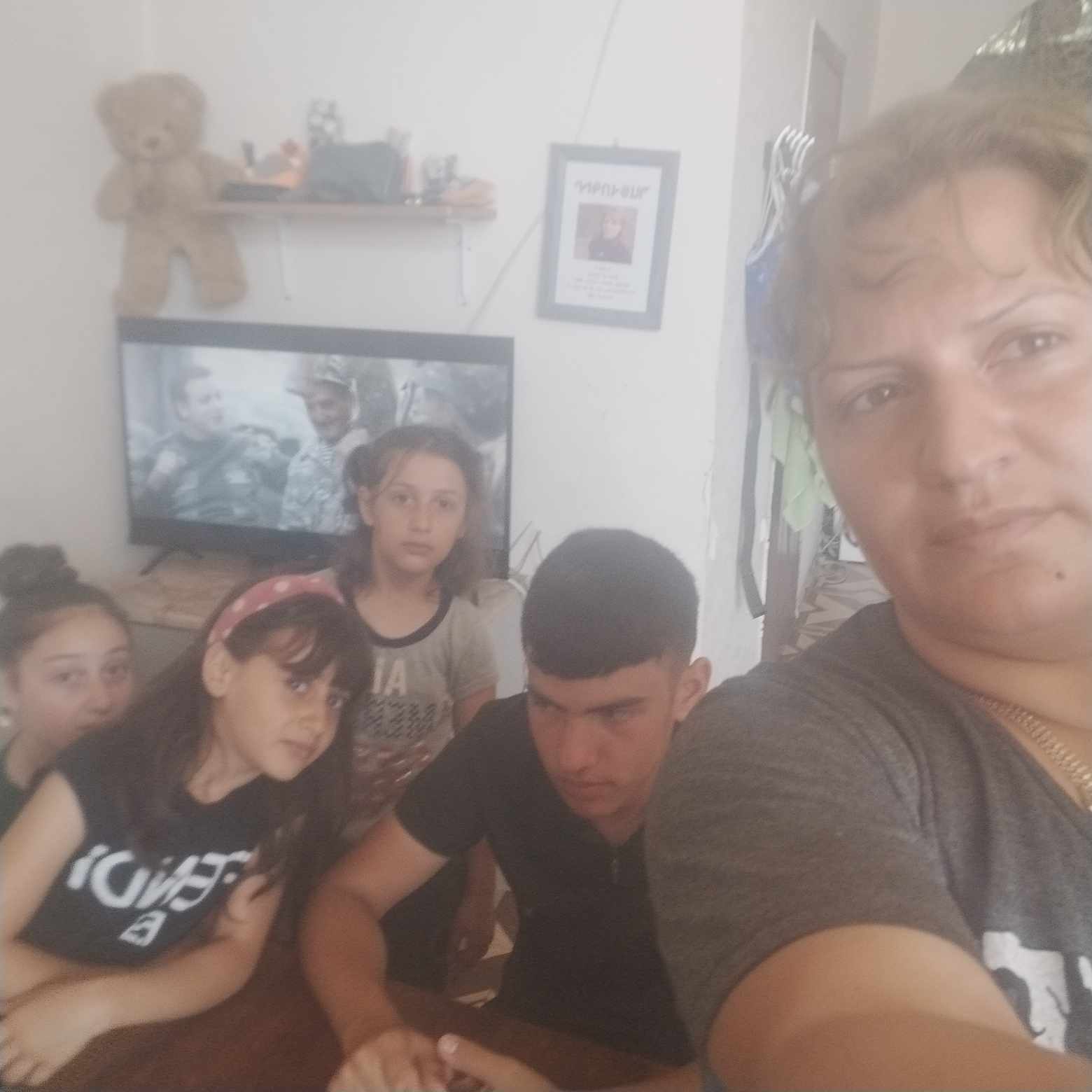
Anush with her children
"The situation is absolutely dire. We spend hours in lines just to buy something for our children to eat. There is no meat most of the time, or if there is, it is too expensive, 5000 AMD and even more for 1kg. We wait in lines the whole day and there is nothing in the shops, absolutely nothing. You can't find even yogurt or sour cream on these hot days, this is the situation we live in. Can you imagine that we don't even have salt anymore? We survive on boiled potatoes or beans as there are no other options available. My children are very upset; my youngest one yearns for candy, but we can't find any. Sweets, a simple pleasure, are now a luxury we cannot access," says Anush, and after our call immediately shares a photo of kids gathered next to her. The youngest daughter, Mane, is 7 years old, Alvard is 12, Gor is 13, Edmon is 16, and Mkhitar has just turned 18. He will be drafted into the army and the family is waiting for the notification.
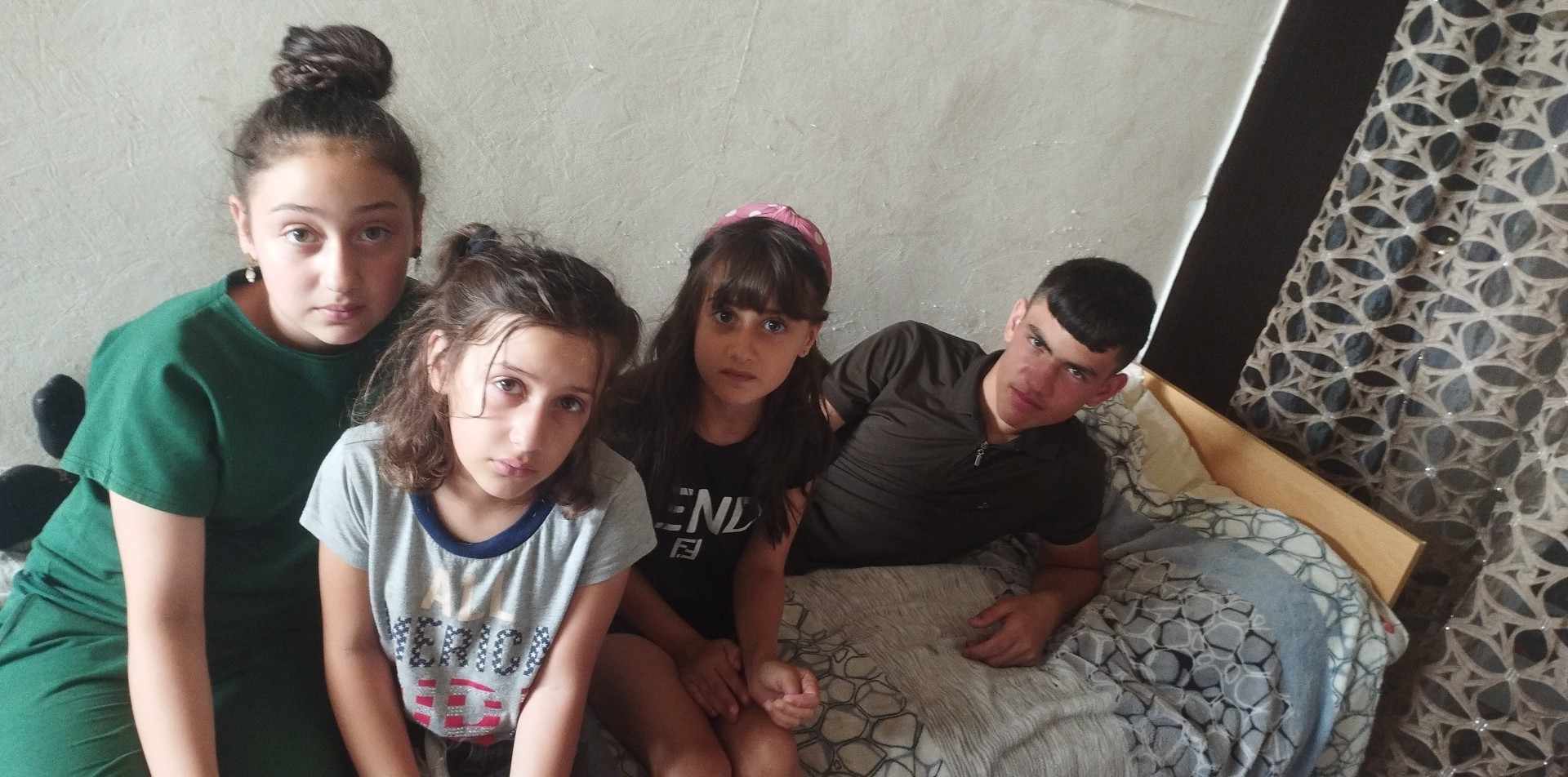
From left to right: Alvard, Nvard, Mane, Edmon
Throughout the entire day yesterday, Anush was unable to buy bread. She endured waiting in line until 10 PM and was the 500th person in line (people are issued numbers on paper to buy bread).
"I couldn't get bread until ten at night, and then I passed the paper to my seven-year-old daughter, who waited for an hour. Luckily, with the help of some kind people, they managed to provide her with a small amount of bread, and she brought it home," Anush says, noting that the process of baking and distributing bread has improved slightly, allowing them to buy a small quantity of bread now.
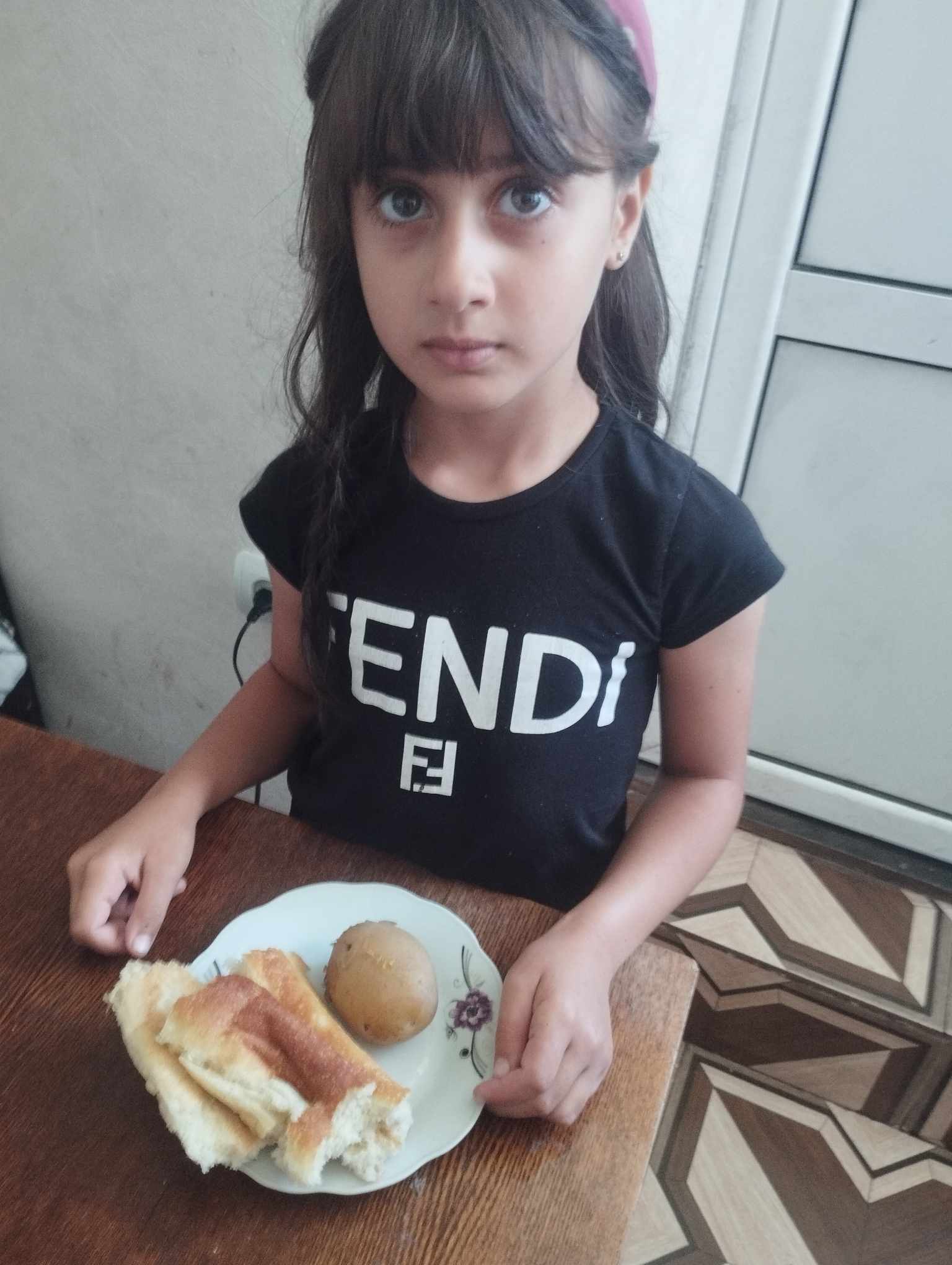
In the past few days, the production of bread in Artsakh has reduced, driven by a notable rise in its demand. Flour mills that produce flour from harvested wheat are facing challenges due to the high humidity of the wheat caused by recent precipitation. This has resulted in a slower flour production process and the need for additional drying work. However, the Village and Agriculture Support Fund of Artsakh has assured that emergency measures are being taken to address the bread shortage, and the situation will be gradually resolved.
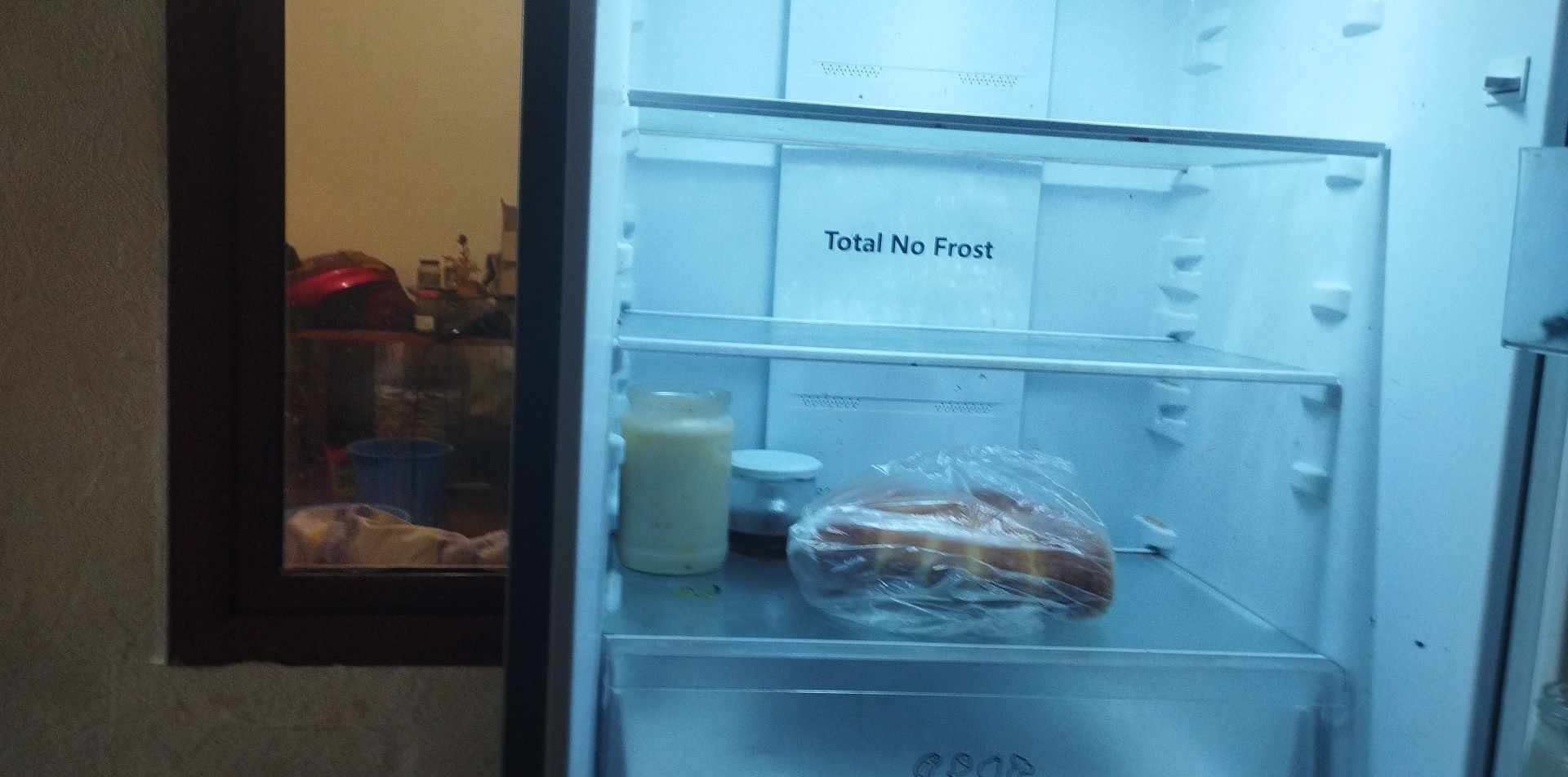
Nvard, a mother of six children, is deeply concerned about her kids’ emotional well-being, too. She reveals that her children get scared every time they hear loud sounds. "Just yesterday, a person in the bread line couldn’t get bread, so he vented his frustration by firing a machine gun in the square. My children were terrified, thinking another war had erupted. It's a terrible situation...That man is a father of several children eagerly waiting for him to return home with bread. Frustrated by his inability to get bread, he took the steps he did… For a brief moment, even I thought that a war had started. Given the age of my young children, how they couldn’t get frightened because of the gunshots?
The conversation ends with bitter sighs.
Since December 12, 2022, Azerbaijan has closed the only road connecting Artsakh to Armenia - the Lachin corridor. On April 23, 2023, the Azerbaijani side blocked the Hakari Bridge on the Artsakhi-Armenian border, an area under the responsibility of the Russian peacekeeping contingent in the Lachin corridor. This action further exacerbated the existing humanitarian crisis. An Azerbaijani checkpoint has been established on the Hakari bridge. Since June 15, Azerbaijan has imposed a complete ban on all humanitarian transportation along the Lachin corridor. After that, the ICRC was only able to transport patients from Artsakh to the Republic of Armenia on a few occasions.
On July 29, Azerbaijan abducted a 68-year-old citizen, who was being transferred to Armenia with the mediation of the ICRC for treatment, at a checkpoint near the Hakari bridge and transported him to an unknown location. On August 1, Azerbaijani servicemen abducted another citizen who was attempting to travel on foot from the Artsakh village of Hin Shen to Armenia. As of now, his whereabouts remain unknown.
Essential food and medicines are almost completely depleted in Artsakh. The coupons issued months ago for purchasing products have become worthless, given the emptiness of the stores. People go out only to buy bread. Artsakh has run out of fuel, resulting in the complete halt of public transport. Private cars rarely operate due to the scarcity of fuel. Gas supply experiences periodic interruptions, there are frequent power outages. A total of 120 thousand people, including 30 thousand children, are currently under a complete blockade in Artsakh.
The photos were provided by Anush Andryan
Hayarpi Baghdasaryan
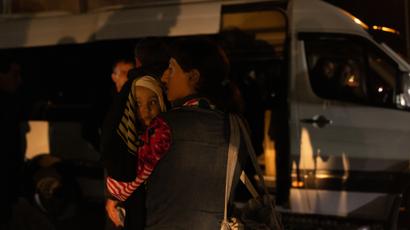
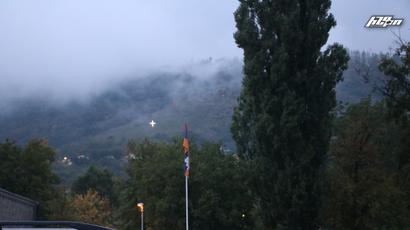
!["I don't want my children to starve, to be subjected to genocide, I want to live in Artsakh, to build our Homeland" [Blockade from the inside]](https://cdn.infocom.am/enlarge?file=2023-08-10-4865f192-ab13-4e84-beab-6232fbca7831.jpg&type=jpeg&width=410&height=230)
!["It's truly unbearable to be captive on your own land; everyone wants to live, yet the possibility of life is uncertain" [Blockade From The Inside]](https://cdn.infocom.am/enlarge?file=2023-08-07-4da13b91-9ae8-4497-a322-a6173bea598d.jpg&type=jpeg&width=410&height=230)
![A mother of five from Artsakh prepares sweets using the last remaining ingredients at home and shares them with neighboring children. [Blockade from the inside]](https://cdn.infocom.am/enlarge?file=2023-08-07-a38344bf-93f4-46f3-be0d-27ad2e27cf27.jpg&type=jpeg&width=410&height=230)
!["When we are in our own country, we endure whatever comes our way; the crucial thing is that we live here as Armenians, bread and hunger, though difficult, are not the primary focus." [Blockade from the Inside]](https://cdn.infocom.am/enlarge?file=2023-08-05-465609c7-c0fd-42d2-9db7-2a568a7428a5.jpg&type=jpeg&width=410&height=230)
!["I will sleep hungry, I won't even eat sweets, but in exchange, I expect to live in my motherland, Artsakh" [Blockade from the inside]](https://cdn.infocom.am/enlarge?file=2023-08-05-ab9a84b3-3f5e-4bcd-b049-5e8660312ed8.jpg&type=jpeg&width=410&height=230)
!["The fact of Artsakh not being part of Azerbaijan is of greater importance than concerns about food." [Blockade from the inside]](https://cdn.infocom.am/enlarge?file=2023-08-04-3e113b85-6b81-4589-b241-11323a00de2b.jpg&type=jpeg&width=410&height=230)
comment.count (0)